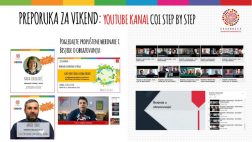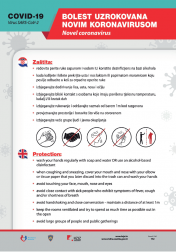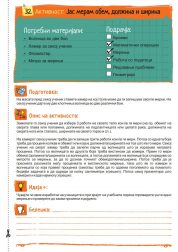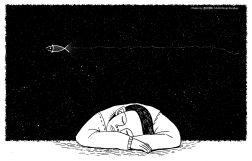FROM NEPC MEMBERS
Lead for EcoJustice: Transforming School Cultures
The Lead for EcoJustice initiative, led by the Network of Education Policy Centers, has just commenced. Eight schools and organizations from Croatia, Hungary, Serbia, and Slovenia have joined this effort to address the pressing environmental challenges and the disconnect between people and nature. The Lead for EcoJustice initiative aims to address this by advocating for […]
Effects of COVID-19 and earthquake on Croatian education system
How did the coronavirus pandemic influence the lives of pupils in Croatia? Are educational workers in Croatia satisfied with governmental support? These are some of the questions NEPC member, Institute for Social Research in Zagreb addressed through a research-developmental project funded by Croatian Science Foundation and implemented in collaboration with Croatian Ministry of Science and […]
GEM Regional Report Eurasia will be presented at the Trends in Education Development Conference in Moscow
The GEM Report and partners will present key findings from the 2021 Central and Eastern Europe, Caucasus and Central Asia report Inclusion in education: All means all, during the 18th annual conference hosted by NEPC member Moscow School of Social and Economic Sciences that will take place online from February 18th until February 20th 2021.
WHAT DO WE DO TO RESPOND TO COVID EDUCATION EMERGENCY? 18# – Daily resources for teachers, principals, parents and children by COI Step by Step
CEI Step by Step has been developing and posting diverse resources for over 10.000 teachers, members of Community of Innovative Teachers, as well as school principals, parents and children from Bosnia and Herzegovina and the Region. Monday become time for sharing teaching strategies aiming to improve students’ critical thinking and problem-solving skills. It’s also a day for weekly challenge for children, and their work has been presented in children’s magazine published every Sunday. Tuesday is all about teaching and talking about human values. Wednesday is a day for laugh, music and art, but also resources for principals such as Leadership in time of crises, and parents – How to survive parenting in a corona time. On Thursday we present large number of ideas send by teachers to other teachers (see here), while on Friday we suggest books, online theater performances and movies together with activities for children.
WHAT DO WE DO TO RESPOND TO COVID EDUCATION EMERGENCY? 17# – WhatsApp groups of Parent Councils established by Children are the Future
WhatsApp groups of Parent Councils and a joint Parents Network group were established, joined by CAF representatives, and were active in sharing challenges, helpful information and recommendations. In addition, along with frequent contacts with school leaders, parents, teachers and even students, joint Skype meetings have been organized, serving as an effective platform for sharing information, challenges faced, lessons learned and as peer learning opportunities.
WHAT DO WE DO TO RESPOND TO COVID EDUCATION EMERGENCY? 16# – “How to talk about Coronavirus with students?” – a publication by Forum for Freedom in Education
This publication consists of more than 25 activities suggested with the aim of: informing the students about the importance of maintaining a regular personal hygiene; getting familiar with the current situation according to their age in order to understand what is happening and how they can contribute to prevent the spread of the virus; encouraging to read current and quality information about the situation from reliable, trustworthy and relevant sources and pointing at the importance of respect of human dignity in all situations with the goal of preventing the spread of hate speech, xenophobia and prejudice.
WHAT DO WE DO TO RESPOND TO COVID EDUCATION EMERGENCY? 15# – Learning activities for language and maths development by Step by Step North Macedonia on Facebook
The teachers share those activities with their students in the online communication. Some of the Step by Step trainers (primary school teachers) were invited by the Ministry to prepare TV classes, and they use the activities from the manuals in the preparation. Step by Step Facebook page is used also for communication with the parents, sharing everyday fun learning activities for language and math development. We also prepare or translate for parents the resources on topics such as How to help students to cope with extended school hours, how to talk with kids about Corona virus, tips for families on self-care and coping with stress in these challenging times, etc.
WHAT DO WE DO TO RESPOND TO COVID EDUCATION EMERGENCY? 14# – A platform for online learning, monitoring and evaluation by proMENTE social research
proMENTE is developing a hybrid model of teaching that combines the educational processes of online teaching and classroom teaching, since such models deliver the best results in terms of efficiency and fulfillment of learning goals and outcomes. The platform we are developing using the principles of social constructivism theory as educational theory.
WHAT DO WE DO TO RESPOND TO COVID EDUCATION EMERGENCY? 13# – “Effect of Coronavirus on Education”, a series by Education Reform Initiative
As the Education Reform Initiative (ERG), we work to monitor the actions taken by the Ministry of National Education. We focus on particularly vulnerable groups, children at risk (Roma, girls, refugees, seasonal workers, etc.) and the digital gap. We initiated blog articles “Effect of Coronavirus on Education”, interviewed the vulnerable communities and shared their voices and the actions of NGOs that support these groups. We also have weekly online surveys for teachers to understand their needs and feelings, hear their voices, and share with the general public. The Teachers Network that we execute has direct contact with teachers, and they support each other.
WHAT DO WE DO TO RESPOND TO COVID EDUCATION EMERGENCY? 12# – Coping strategies of pupils facing pandemic and earthquake: an analysis by ISRZ-CERD
Needs assessment questionnaire was developed and administered online in three secondary schools in March 2020 in order to gain an immediate insight into the stress and coping strategies of pupils facing pandemic and Zagreb earthquake as well as the demands of distance learning. Results have been reported to schools along with the recommendations on the strategies of supporting pupils and have received media coverage. ISRZ – CERD team designed a project proposal submitted to the recent COVID-related call of the Croatian Science Foundation. The proposed research project aims to explore educational and psychosocial aspects of distance learning implementation in Croatian pre-tertiary education in the context of COVID-19 pandemic, bringing together perspectives of pupils, parents and educational workers.














